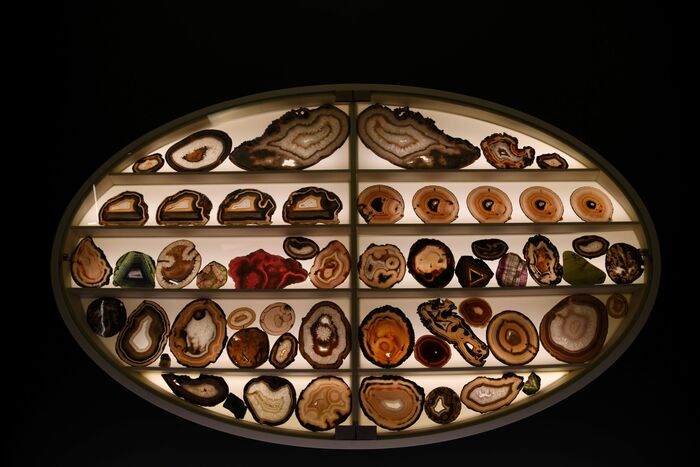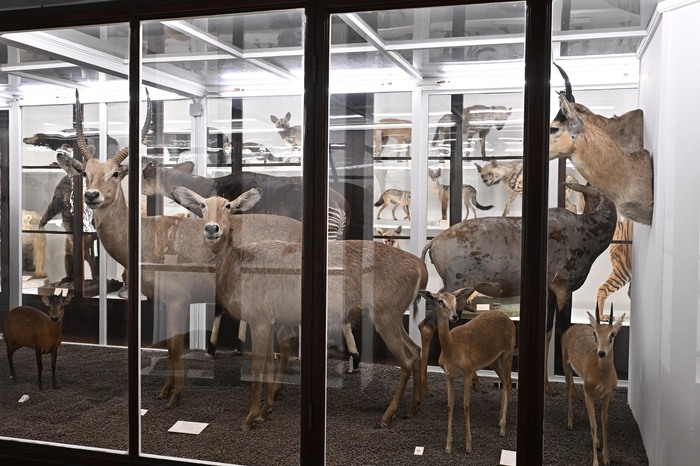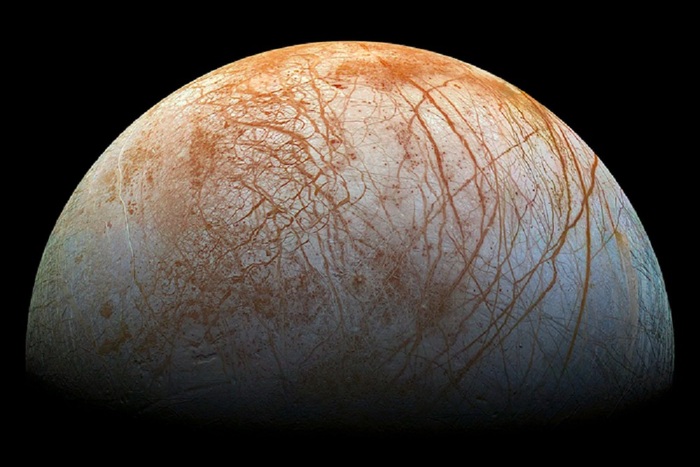The University of Michigan has discovered that one of the jewels in its collection is fake.
After conducting an internal investigation, the entity concluded this Wednesday that the manuscript of the astronomer and engineer Galileo Galilei (1564-1642) that it treasures is actually a forgery made in the 20th century.
The definitive proof has been the characters that are observed in the watermark of the document (the engraving that certifies its authorship and place of production) prove that it cannot be prior to the 18th century, nearly 200 years after the death of its presumed Author.
The letters BMO, corresponding to Bergamo, are read on the brand.
According to the University of Michigan, there are no watermarks associated with that city prior to the year 1770.
More information
A copy of the stolen 'galileo' was auctioned at Sotheby's in 2005
It is suspected that behind this false manuscript is the Italian professional forger Tobia Nicotra, who in 1934 was sentenced to two years in prison for similar works, including copies of other papers attributed to Galileo.
The document includes a draft letter on Galileo's official presentation of the telescope built for the Doge of Venice in 1609. There are also notes on his observations of the moons of Jupiter between January 7 and 15, 1610, which involved a challenge to the old notion that everything in the universe revolved around the Earth.
The forgery was auctioned off in 1934 as part of the belongings of philanthropist Roderick Terry.
That sheet, according to the catalogue, had been verified by Cardinal Pietro Maffi, Archbishop of Pisa,
after comparing it with a letter from Galileo that he already had in his collection.
The manuscript was purchased by a Detroit businessman named Tracy McGregor, whose foundation, managed by his heirs, donated it after his death to the University of Michigan.
UM Library's Galileo manuscript was recently discovered to be a forgery.
I got a “pre-forgery” photo of it in 2019 at a Special Collections astronomy event pic.twitter.com/LnQKiKlMd2
— SW (@FogCount) August 17, 2022
Suspicions about the falsity of the document, which had been in the university's collection for almost a century, were first raised by the American historian Nick Wilding.
The expert noticed the detail of the monograms in 2020, when he was preparing a new biography of Galileo that he has not yet published.
In 2012, Wilding identified the book
Sidereus Nuncius as a copy.
, also by Galileo, preserved in the National Library of Spain.
During the documentation work for his biography, he also pointed out the falsity of a letter attributed to Galileo, in the hands of the Morgan Library in New York, which in reality would also be the work of the forger Nicotra.
"As soon as I ran into Nicotra, my spider sense was activated," Wilding explained about his investigation.
The professor was struck by other details such as the use of certain words in the text, which he did not associate with Galileo's style, and the fact that the ink in the initial and final part of the writing seemed very similar despite the fact that it was supposedly they had written months apart.
“It just draws attention.
It's supposed to be two documents that happen to be on the same sheet.
Why do they have the same brown color then?
Wilding also investigated the forger himself.
He found out that the professional had also been selling fake missives and musical scores to support seven lovers.
In addition to Galileo, other renowned figures such as Amadeus Mozart, Lorenzo de' Medici and Christopher Columbus may have been victims of the Italian's fraudulent works.
Several experts warn in an article in
The New York Times
about the probability that more fake pieces will be found among the large collections.
The interim dean of the university's bookstores, Donna L. Hayward, has spoken out about the fiasco.
“It was devastating to learn that our
Galilean
was not really a
Galilean
”, assured the manager, who also recognizes that hiding this reality “under the rug” would go against her values.
In the statement from the University of Michigan regarding the investigation, those responsible for it say they are "grateful to Professor Wilding for sharing his discoveries" and that they are working on "reconsidering the role of the manuscript" in his collection.

/cloudfront-eu-central-1.images.arcpublishing.com/prisa/54TVIZS5ENAC7POIABV3RXZBGI.JPG)



/cloudfront-eu-central-1.images.arcpublishing.com/prisa/B4T7XCN2ORDQLGNNVCIV4QQYC4.jpg)
/cloudfront-eu-central-1.images.arcpublishing.com/prisa/AW2KNQ2UOZA4PHPLO4DEKRFIOQ.jpg)

/cloudfront-eu-central-1.images.arcpublishing.com/prisa/3YP3SDM63XXITQI7H2UREMXKKQ.jpg)






